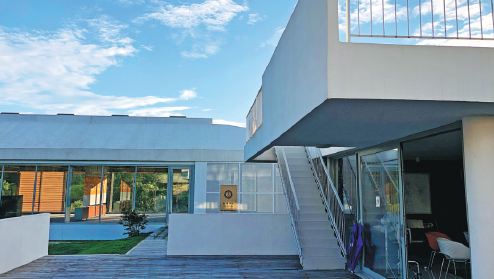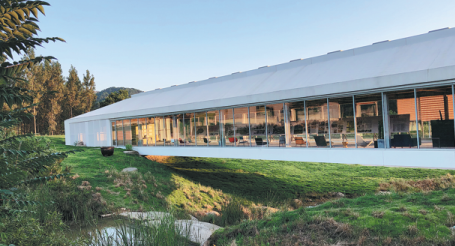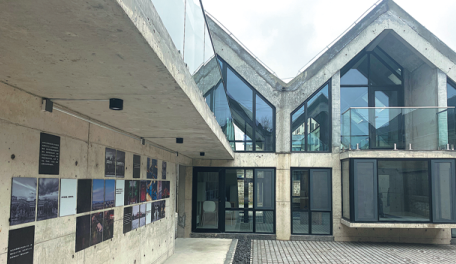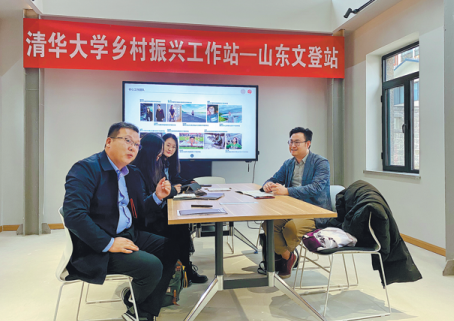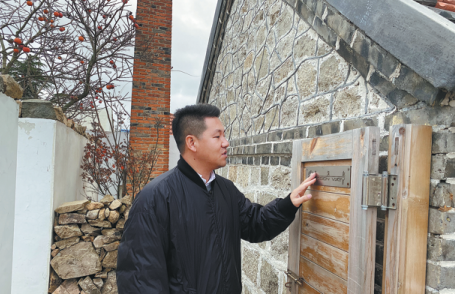Centers of excellence
Tsinghua University, in conjunction with local governments, is setting up bases in rural areas to explore long-term revitalization projects, Zhao Ruixue reports in Weihai, Shandong province.
In late November, it might have been cold outside the Tsinghua University Rural Revitalization Wendeng Station in Weihai, Shandong province, but inside, a lively discussion about how to develop the town by integrating the institution's resources with those of the local, rural area was heating up.
The facility, jointly built by the university and the town government of Dashuipo, is located in Wendeng district of the coastal city.
"We can coordinate resources of our university to provide targeted assistance, but we need to know what the town needs by doing research in the town," Zhang Shuming, representing Tsinghua at the discussion, explained to the room.
The 23-year-old, who is pursuing a doctoral degree at the School of Architecture of Tsinghua University, immediately began fielding questions and responses from village and town officials.
"It will be great if Go players at Tsinghua can join us in the competition which will be held in our village next month," says Li Lin, an adviser in the town who has lived in Dashuipo for years since moving from a big city. He was then followed by Liu Wenguang, an official of Dashuipo.
"To expand markets, attractive logos for our agricultural products are needed," he explains.
A wide range of topics including how to brighten the villages' environment and improve infrastructure were also discussed.
"The discussions are helpful. They help us get to know locals' needs and hear their requests when developing their villages," says Zhang, adding that such discussions will be held regularly as part of the station's work.
Dashuipo, a town made up of 89 villages with a total population of 40,000 people, is the largest town in Wendeng. It is the fourth base put into service by Tsinghua since 2017, when the university launched a campaign to promote rural revitalization around the country. The university plans to build a total of 19 rural revitalization stations in 14 provinces.
The reason to build the stations is to help promote the endogenous power of rural development.
"The stations provide a base for students staying in villages to carry out field research and other related activities. They get to know the village, then they know how to develop it," says Han Haoqing, secretary of the Communist Youth League of China at the School of Architecture at Tsinghua.
Tsinghua students have visited the villages of Dashuipo several times, according to Zhang. They lived in the villages and talked to farmers to learn about the local history, dialect and geographical features, as well as the farmers' food and lifestyle.
With the knowledge they have accumulated from their field studies, they have facilitated street construction and designed trash cans, village logos and packages for local agricultural products.
"The rural revitalization provides us with good opportunities to apply our knowledge," says Zhang.
For example, students from the School of Architecture at Tsinghua have helped transform houses that have been left unused into ones with local features. The buildings of the Wendeng station at Dashuipo adopted the same ridge shape as local houses to present a dynamic effect.
The station, which took more than one year to complete, features an opening core area surrounded by facilities including a theater and an exhibition room. Near the station, unused local houses have been transformed into homestays and a coffee room.
"During the design and construction of the station, we overcame many difficulties. We had to reschedule our work plans to account for the rainy season," says Zhang, adding that it was not easy to turn their design into reality.
Many students have volunteered to join in the rural development in different ways, Han says.
In late November, three students from the School of Civil Engineering, the School of Architecture and the School of Humanities at Tsinghua shared stories of the lives and studies with senior middle school students in the town.
"Education plays an important role in rural revitalization in the long run. We are planning to host more activities with the university to expand students' horizons," says Liu.
"Our stations of rural revitalization are open and long-term projects with public interest at their hearts. With the stations, we hope to attract more teachers and students, alumni and alumna, social organizations and other schools' teachers and students to join us in revitalizing the rural areas," says Han.
The Wendeng station creates a new working scheme which features three sides representing the university, the university's alumni and alumna, as well as the local side, in bid to respectively coordinate and combine their resources into serving the revitalization of the local rural area.
Li Jiutai, who obtained a doctorate from the School of Architecture at Tsinghua, has been selected as the representative of the local side for his achievements in promoting the local development of Dashuipo over the past two years.
"The station gathers more high-end talent, which will have a far-reaching significance in promoting rural development because they will bring ideas and technologies," says Li, 40.
Two years ago, when Tsinghua and the local government signed an agreement to build a base at Dashuipo, Li Jiutai had already started a Design Valley project at the town's Chujia village.
Following him, a total of 33 people have come to Chujia village to rent abandoned houses and renovated them into ones with modern features. These people are now considered as new residents of the village.
Dashuipo has convenient transportation links close to both the local airport and railway station, "and the town government welcomes us with open arms", says Li Jiutai. He has brought his wife and two children to live in the village.
During the past two years, Li Jiutai and his friends have designed tourism packages for the village. They also registered brands for the sweet potatoes grown by villagers. The agricultural products are sold to major cities, such as Beijing and Shanghai.
Li Jiutai is now working on cooperating with a research center affiliated to Tsinghua University to build a research center on city development in Weihai.
"In Chujia village, the youngest adult villager is 55 years old (because young people have mostly gone to big cities to work).There are no young people to develop the village, and this is the biggest problem for such places. The Wendeng station will gather more people, including students, here," he says.
"Although the Wendeng station was only put into service in August, it provides a good start for us. With persistent effort, I believe we will see great changes in the villages, not only in their appearance, but also in their economies and the lifestyle of the residents," says Zhang.
Contact the writer at zhaoruixue@chinadaily.com.cn
